|
Vidas: Hi guys, this is Vidas!
Ausra: And Ausra! V: Let’s start episode 396 of Secrets of Organ Playing Podcast. This question was sent by Dianne. And she is our Total Organist student, and she answered my question of what she is struggling with this week. So, she writes: This week I’m making stupid mistakes (and different ones every time). The difficult passages I practice go well, and I mess up on the simple parts. Focus, maybe? I am also getting over some virus thing, and I feel a bit foggy - brained. (More so than usual, anyway. Haha!) V: Ausra, do you sometimes feel that you are making stupid mistakes in simple places? A: Sure, and it means that I cannot focus, or that I focused too much on difficult passages and then I could not play any easy ones. V: Do you think that Dianne might be doing this because of her virus? A: Definitely. If she feels foggy, I think this is an indication that she should not be practicing. V: She should wait it out. A: Sure. It surprises me, actually, how little consideration people give to their health. V: I played a recital once while sick. A: I remember that. It wasn’t a smart thing to do. V: It was draining my energy, and I just couldn’t cancel. You know? A: Well, you could cancel. You always can cancel. It’s better than to play when you are sick and have a fever and then damage your health permanently, because you can injure your heart by doing that. V: What do you mean? A: Well, even kindergarten kids know that! V: So I am stupider than kindergarten kids! A: Sure! Nowadays the Internet is full of all kind of information about that. V: What do you mean “sure!” A: There is all kind of information out about what a virus can do to you if you will not treat yourself and take consideration. V: So you don’t suggest Dianne practicing now. A: Definitely not. V: You know, by the time she hears this conversation, she might be already healed. A: Sure! I hope! V: Because we have a backlog of podcast conversations, and some files are waiting to be transcribed. A: Well, sometimes I’m thinking that people in general think that they are heroes. That they are feeling bad, but they still do what they do on a regular basis. That’s like my students come to school while sick, and they feel almost like heroes, “Oh, I came to school although I have a fever.” Or sometimes I get things like, “I feel so bad, I have a fever, but I came just because of the Harmony...” or “...of the Solfège,” and I’m just thinking, “just go back home. Don’t spread your viruses and your bacteria here.” V: Well, Ausra, to be fair, have you ever gone to school or to your work while sick? A: Yes, but that was earlier, when I still had a good health. And now, after I ruined it, I know what it is! V: You have life experience. A: Sure. V: And nobody can take that away from you. A: That’s right. But nobody listens to me. V: I do! A: I doubt it! V: So… yeah... A: But everybody has to decide for themselves. Like, last Friday for my senior students, I was sort of preaching that, “Oh, you need to watch for your hygiene, especially in Winter time when everybody sneezes or are sick all around. You need to wash your hands, or to cover your nose when you are sneezing,” and things like this. And then, I got a stomach flu during the weekend. So, I did everything in my power to go back to school on Monday, because if I would not, and my students would find out that I had the stomach flu, then they could tease me! “What about…” You know…. “Don’t you wash your hands?” So, I didn’t want to advertise something or preach, but I’m talking from my own experience. V: I think it’s wise to always share your own experiences, because you never know what other people go through, and what is their experience. Even though Dianne wrote something, it’s just an excerpt of her life, right? We don’t know everything. But you know about yourself, and how you would behave and how you have behaved in the past. Right? A: Well, because in general, I think if you want to do well on the organ that your practice would be productive, you need to have good health condition, because it takes a brain, and it takes a body, too. V: So, we need to stay in shape, we need to be active, moving, and then eat healthy, probably, what else…. Sleep well… A: Sleep well, yes. V: Eight hours, probably… A: Well, seven hours, at least. V: Seven? I would prefer eight, but… but not everybody can sleep that long. And then, of course, heal their short term illnesses, like viruses. A: Because if you’re feeling foggy and you’re still practicing, what good would such a practice do? You will not improve your organ performance quality with such a practice, and you might damage your health—ruin your health. V: So, when you’re sick, Ausra, for example you, with your stomach flu, or bacteria infection that you had at the beginning of the year, is there anything that you can do besides lying in bed? A: Listen to the radio. I don’t know, it depends on the person, but really, if you have a fever, you cannot practice, you cannot read, you cannot watch TV. Maybe you can listen to radio. V: Listen to audio A: Yes, listen to audio. Not with your headphones. I don’t think that would be good. V: Listening to audio books is fine. A: Yes. You could listen to organ recordings. That way, you would still be in touch with organ. V: Organ world, yeah. Okay, lots of things to think about when you are sick, but I guess organ playing shouldn’t be the first on your mind when you are sick. A: Sure, because next time when you will feel good, you will do double as much, and I think it will compensate for what you missed. V: And, sometimes, when I say that, for example, I have to practice, practice, practice because my recital is coming up in a week or two, and now I’m sick and I don’t have time to be sick, I think it’s just poor planning. A: Yes, and that’s why I’m always telling people that you need to be prepared ahead of time, that if something will happen, you would still feel fine. You would still feel calm, that you still have some time, and you will be okay. And you wouldn’t need to practice with a fever. V: Yeah, be ready two months before, at least, to play your run-through of the recital or public performance. Then, you will have plenty of time to improve, and even if you get sick, you will be okay, I think. Right. And then, of course, improvisation helps. Imagine if your recital is coming up and you don’t have time to practice, but you constantly practice improvisation, you feel calmer, because you know that if you feel okay on the day of the performance, you can just sit down and play from your fancy. Right, Ausra? A: But that’s if you are an improviser. V: I mean, that could be the goal: to become an improviser. One of the benefits to become an improviser is that you have this freedom. Okay, thank you guys for sending those wonderful questions; we love helping you grow. We don’t always have the answers that might be suited for you personally, but we certainly can share our experience, and we hope this is helpful in some way. Okay, this was Vidas, A: And Ausra, V: And remember, when you practice, A: Miracles happen!
Comments
Vidas: Let’s start Episode 67 of #AskVidasAndAusra podcast. And today’s question was sent by Vince. He writes:
“Dear Vidas and Ausra: When I am playing hymns or a classical piece with 4 parts, sometimes a mistake happens where I can not tell which voice has the mistake. If performing, and not able to stop and figure out where the mistake is, the error may carry over to subsequent notes in that part because I don't know WHERE to make the correction. I'm not tone deaf, but at times the mistake totally eludes me, even so far as, the mistake is in the pedal but it sounds like it is in the soprano! Any advice on how to deal with this? Please don't say "just play perfectly!" :-) Perhaps ear training, but what method? Thank you very much. I enjoyed the interview with Kae Hannah Matsuda.” So, it’s wonderful question, right? I’m very glad he liked this interview with Kae, who helps us to transcribe those podcasts and make text versions available to you. Without her help, this would not be possible, so thank you so much, Kae. And Ausra, Vince is having a problem with detecting mistakes, right? Ausra: Yes. So, as he told himself, I think that ear training is the best solution to solve his problem. Because you have to learn to hear each voice that you’re playing, and it doesn’t matter how many voices you are playing at a time--you have to hear them all. And I would have a couple suggestions for him how to do it. First of all, he has to learn to sing each line of his hymn. If it’s four voices, he has to learn to sing them all, and to know them all by heart. Vidas: That’s very great advice, Ausra. All the main professors we’ve worked with recommend this technique, too. And obviously, this helps. Every time you discover a polyphonic piece with independent voice lines, you have to simply listen to inner voices especially; and there is no other way to do that at first, than to actually sing it. Ausra: Yes, and when I teach solfége we sing four-part exercises; and the main technique is, you know, that the student comes to the piano; and for example, I’m telling him or her, “Sing me tenor”--it means that he or she will sing the tenor line, and will play the other three parts together. Vidas: Aha, so tenor will be silent. Ausra: Yes, tenor will be silent--from the keyboard; but he or she will sing it. That’s an excellent technique, it develops your ear very well. Vidas: How do your students react to this at first? Is it frustrating for them? Ausra: Yes, it is frustrating for them. Not so much for choir conductors; but for other majors, yes. And everybody wants to sing the soprano line, but I never ask to sing the soprano line, because that’s the easiest part! And basses, not so bad; but alto and tenor are the hardest voices to sing. But they are very useful for your ear training. Vidas: But they don’t start with four-part textures, do they? Ausra: Yes, if it’s hard for you to do that, you have probably to just take a bicinium. I mean, two voices--a two-voice piece. Play one, and sing another one. Vidas: I would even think that Vince should start with a single part, a single voice. Just imagine it’s a counterpoint exercise, just like organ playing; so ear training is sort of also an art, and a skill you should develop equally well over time. And with organ, you could start with one single line. So why don’t you start with one single line when you sing those melodies? Ausra: Yes. Vidas: From your own piece. Or a hymn. You don’t need to actually get a special ear training book for that. Ausra: Well, a hymnal is an excellent source of things--you can do exercises from any of the hymns. Vidas: Yeah, absolutely. The voices are sort of independent, but not too independent. Ausra: You can take, for example, a four-part hymn, and just omit the middle voice, tenor or alto, and do soprano and bass. If it’s very hard for you, just play bass and try to sing soprano (melody), which is well-known to you; and then, you know, play soprano and sing bass. And then maybe,you know, later, when you feel comfortable with those two voices, you will add two more voices. But it will take time; these things take time, but it’s worth doing it. Vidas: I have just had an idea now, like lightning struck into my mind, that a similar course designed specifically for organists who play hymns to develop their ear training, would be excellent and very, very helpful, right? If we could devise such a training program, then over time, people could really develop a much better sense of pitch, discovering their mistakes, expanding their abilities to understand the pieces that they’re playing, right? Ausra: Yes. Because if you can sing correctly, I don’t think it will be a problem for you to hear if you are playing it correctly or not. Vidas: Mhmm. Right now, as we’re recording this, I only had prepared a melodic dictation course, basically for one melodic line. And that’s not enough, right? You have to actively sing, learn to sing those melodies--and in combination of melodies up to four parts, over time. Right? Ausra: Yes. Vidas: So guys, maybe we will try to figure something out and systematically develop such a training, so that you could simply jump in and get started with the materials; and over time, develop your sense of pitch--just like we would teach our students at school, National Čiurlionis Arts School in Vilnius, which is extremely well-equipped with theory, with music, harmony training...and things like that, for musicians. Please let us know if such a course would be helpful to you or not. Wonderful! Thanks, guys, this was Vidas. Ausra: And Ausra. Vidas: And remember, when you practice… Ausra: Miracles happen.
Vidas: Let’s start Episode 57 of #AskVidasAndAusra podcast. Today’s question was sent by Christa, and she writes:
“Hello Ausra and Vidas, Thank you very much for your podcast. It is easier for me to follow the written version, so thanks a lot for it too. My question is: How can I avoid hitting two keys in the pedals at once? It happens easily, when I have to turn a bit over the middle and play lower notes with my right foot and higher ones with my left foot. Best wishes, Christa” So basically, this question involves accuracy in playing pedals, right, Ausra? Ausra: That’s right, yes. Vidas: Do you notice yourself sometimes playing wrong notes, with your feet? Ausra: Well, yes, definitely, sometimes I hit the wrong note; but actually, I don’t hit two keys at the same time with my feet. And since your feet are larger than mine are, maybe you encounter that problem. Vidas: I guess the reason for this is simply an inability to adjust to the pedal part easily. And I don’t know if Christa is practicing on different kinds of pedalboards all the time, or just if she is used to one specific pedalboard; but it would help her, probably, to practice pedal preparation, don’t you think? Ausra: Yes, I think that would be helpful; also, I’m not sure what kind of shoes she uses--if they’re suitable shoes for organ then it shouldn’t be so hard to hit only one key at a time. Because special organ shoes have narrow tips. Vidas: And the heels are reasonably medium-high, and they are not very wide, too; so basically if you have ordinary organist shoes, you are in good shape. Ausra: I think she might not turn, shift her body position fast enough, when she changes the position, going from the low pedaling to the high. Vidas: What’s the easiest way to shift positions? Ausra: Well, sometimes it’s very good to note especially if there must be a sudden shift, to add it in your score--maybe with some kind of sign. Vidas: Maybe an arrow, right? Ausra: Yes. Vidas: Going upwards or downwards. Ausra: Because I think the main reason she is unprepared for that shift in advance, and it takes too long; and then she just moves at the wrong time and hits two keys instead of one. Vidas: That would help, obviously. And another thing that I mentioned earlier is pedal preparation, where you basically practice, multiple times, a short segment of pedal passage, and you aim to move your foot to the next pedal note, and let it rest there. Ausra: Yes, and I’m thinking of another thing: her pedaling is maybe not correct; Maybe she tries to play too high with the left foot and too low with the right foot. Maybe she should revise her pedaling, to check it. Vidas: But that depends also if you can shift your body comfortably. Ausra: Sure. Vidas: Because for me, earlier I thought I could play extremely low passages with my right foot, too, or extremely high passages with my left foot. But today I avoid that, and everything below bass G goes with my left foot, and everything above maybe A--like an interval of a perfect fifth in the tenor range, I would play with my right foot. Ausra: Well that’s an easy way to do it in Baroque music; but if you’re playing later music, you cannot avoid playing with both feet all over the pedalboard. But anyway, I would sugget Christa to revise her pedaling. To see if it’s really good written. Vidas: Exactly, and focus on practicing separate pedal lines and segments repeatedly. Ausra: In a slow tempo, first. Vidas: When you say slow tempo, how slow should it be? Ausra: Well, I would say very slow, but, the tempo that you feel comfortable to playing right, in a correct manner. Vidas: Basically, you play without mistakes, in this tempo. Ausra: Sure. Vidas: You avoid mistakes. So, fifty percent of concert tempo? Ausra: I would say so, yes. Vidas: If the tempo when you are ready to perform it in public is, let’s say, eighty beats per minute… Ausra: Yes? Vidas: Maybe it could be like forty beats per minute, when you practice. Ausra: And also another suggestion would be, if the spots--a particular spot is very hard for you to hit one note at a time, maybe you just take a fast look down to the pedal. Maybe It’s not the best thing to do; but if you will do that twice, or three times throughout the entire piece, I don’t think it will be a crime. And it might help you. Vidas: We look at pedals anyway. Ausra: Yes, sure. Vidas: Sometimes. Ausra: Sure. Vidas: We don’t recommend looking at the pedals; but involuntarily...sometimes we manage to get a glimpse or two. Ausra: So sometimes it’s better just to take a quick look, than to make a mistake. Vidas: And then, if you do have to look, then mark that particular place in your score: draw a sign of your eye, for example. Ausra: Yes. Or eyeglasses. Vidas: Okay guys, we hope this was useful to you. Don’t forget to send us more of your questions, and you can do that by subscribing to our blog at www.organduo.lt and simply replying to our messages. We will be very glad to help you out to grow as an organist. So--this was Vidas. Ausra: And Ausra. Vidas: And remember, when you practice… Ausra: Miracles happen. By Vidas Pinkevicius (get free updates of new posts here) I was at the lunch recital today at Vilnius Cathedral. My colleague Agne Petruskeviciute played works of Tournemire, Marchand and others which I live-streamed on FB. A couple of days before I suggested Agne would live-stream this event but she said others better do it. So I decided to be this "other". I did it while walking around the Cathedral. It's beautiful. After the event my colleagues said they were following me with their eyes as I recorded it. They look strangely at me, something like I'm different species. I can't help it. I see opportunities everywhere where they see limitations. It doesn't mean I'm failure-proof. No, I make mistakes just as everybody else. In fact, I deliberately try to make MORE mistakes than them. Because I know that mistakes won't kill me. They only help me grow. What does it take to have this optimistic mentality? Maybe realization that life is short. Maybe understanding that each of us are given some talents which we shouldn't hide. Maybe the fear of not reaching my own potential. Maybe all of the above. What about you? When you have an opportunity to share your organ practice or performance, do you hide in fear or do you jump in right away? Or perhaps you get started no matter what you feel because it's the right thing to do, because you can? Then when you get a message like this (from Victoria, our Total Organist student)... Dear Vidas and Ausra, ...Then you see that it's not for nothing. That actually your work means something to people.
But the first step as always is to care. To care enough to make mistakes, to fall flat on your face, to make a fool of yourself. Because you can. By Ausra Motuzaite-Pinkeviciene (get free updates of new posts here)
How to get rid of the panic when you make a mistake on the organ? How to be relaxed and keep going as if nothing happened? These questions should always be on our mind. The strong organist is not the one who never fails. Actually, if you never make a mistake, you never do anything important, perhaps hiding in your practice room boasting to the world you have what it takes but in reality never sticking your neck out in public. The strong organist is the one who fails gracefully and continues to learn from mistakes made by her or by her peers. The strong organist is the one who remembers that failing is not about her personally. The strong organist is the one who says "thank you" even when falling down in the dirt of bunch of pedal and manual mistakes. So where to begin being such an organist? How about when you mess up, giving everyone a warm, generous smile? By Vidas Pinkevicius
How to recover from a big mistake during your public organ performance? Always treat your performance like improvisation. Never let yourself be restricted by the notes on the score. When you make a big mistake, try to do one of the two things: 1. Go to the nearest half step up or down. That's all it takes to find a suitable note. 2. Repeat the mistake several times with some variations and use it as a turning point in your composition. This way it becomes intentional and part of the performance. If you play from the score and play the wrong chord or note, see if you can keep the steady pulse and don't stop the flow. Instead think of the key this episode is in, and play a simple chord progression (a cadence) in that key which will give you time to adjust to where you are in the score and continue your performance. Most importantly, breath to avoid panic and remember that your audience doesn't usually know each note of the piece (unless it's a popular hymn or anthem). Even then, rhythm is more important than melody. Keep up the flow. By Ausra Motuzaite-Pinkeviciene Why do we make mistakes in performance? This question has many answers and I don't know if any of them is a correct one.
There are some possible reasons. First of all, you might not be ready to perform yet, maybe you had too little practice and therefore you had a panic attack during an actual performance. Secondly, we are not robots and not computers, so we cannot program ourselves and play without mistakes. Also we might lose our concentration and make a mistake. There are all kinds of thoughts that come to our minds while performing. For example, I play so well even in that difficult spot and I didn't make a mistake but this is a moment than the mistake happens. I'm sure every performer would have her own answer to this question. My best advice to you and myself would be just to stop worrying about making mistakes. Face them with a smile. You are not going to eliminate mistakes in pedal playing because your feet often will want to play notes not written in the score. You are not going to eliminate mistakes in manual playing because your hands will still hit the wrong notes from time to time. Your performance will never be perfect like Bach's because Bach's wasn't perfect either. You will never be able to please every listener who attends your recital because to please everyone is to not matter to no one. You will never be able to make every member of the congregation who attends a church service that you play happy because you are not in control of their emotions. You will never be able to improvise like the world famous masters do because all you can hope for today is to improvise better than yourself yesterday. So what to do with all these worries that we all have? Nothing. When you fear something, sit down on the organ bench and start practicing at least for 15 minutes. Your worries will disappear (at least for now). When we play organ, our tendency is to judge ourselves and our playing on how well we did. After all, if we din't make mistakes, we did a good job, it seems. I look at this question in the different light. If we didn't fail (at least a little), we probably didn't expose ourselves to enough risk and fear. If we didn't expose ourselves to enough fear, we chose a safe path. If we chose a safe path, we didn't reach our potential. If we didn't reach our potential, we let ourselves and the people who are counting on us down. So I say, don't ask whether or not you made a mistake. Instead, ask whether or not you showed up. And showing up is really underrated. Because if you have the guts to show up again and again no matter how many times you fail, sooner or later you will succeed. Student Testimonial:
"Your sight-reading course is for me a great pleasure. In the beginning the course took me much more than 15 minutes a day. But now I am exercising the left hand everything is going much easier better and faster. And the same is the case when I repeat the right hand exercises. I feel the sight-reading training will for me be very helpful for my further study." - Willem To come up with a great but risky idea which doesn't resonate with your audience yet or after seeing that this idea didn't lift off, didn't succeed - to give up and stop bothering about it?
This is a tricky question to answer - we see this again and again in business, in classrooms, in organ recitals, in families - everywhere where there are at least two people involved. You thought you can change the world (your world) but the inertia was stronger - not too many people want to be changed, even less people want the change of you. Your idea failed because a) it wasn't remarkable enough for the people to tell their friends about or b) they are not the right people for you. Here's a more productive way to look at this: Based on what you learned from your audience, you change something in your idea or the execution of the idea and do it again (if they are the right people for your idea). If not - you go find some other people who are more likely fit to what it is you have to offer them. If you give up too soon, you will not be able to change the people you want to change. On the other hand, if you just obnoxiously pitch the same idea the same way repeatedly to the same people - they will flee from you like we run from selfish telemarketers. But if your idea generously helps people achieve their dreams, you have a chance. The first step is knowing what their dreams are. Usually it's not what they say they want - it's what their inner subconscious needs are. [HT to Pieter] Next: Two pieces for Thanksgiving Sight-reading: Part III: Allegro from the Trio Sonata No. 2 in C minor, BWV 526 by J.S. Bach Hymn-playing: I Bind Unto Myself Today |
DON'T MISS A THING! FREE UPDATES BY EMAIL.Thank you!You have successfully joined our subscriber list.  Photo by Edgaras Kurauskas Photo by Edgaras Kurauskas
Authors
Drs. Vidas Pinkevicius and Ausra Motuzaite-Pinkeviciene Organists of Vilnius University , creators of Secrets of Organ Playing. Our Hauptwerk Setup:
Categories
All
Archives
July 2024
|
This site participates in the Amazon, Thomann and other affiliate programs, the proceeds of which keep it free for anyone to read.
Copyright © 2011-2024 by Vidas Pinkevicius and Ausra Motuzaite-Pinkeviciene.
Terms of Service and Privacy Policy
Copyright © 2011-2024 by Vidas Pinkevicius and Ausra Motuzaite-Pinkeviciene.
Terms of Service and Privacy Policy

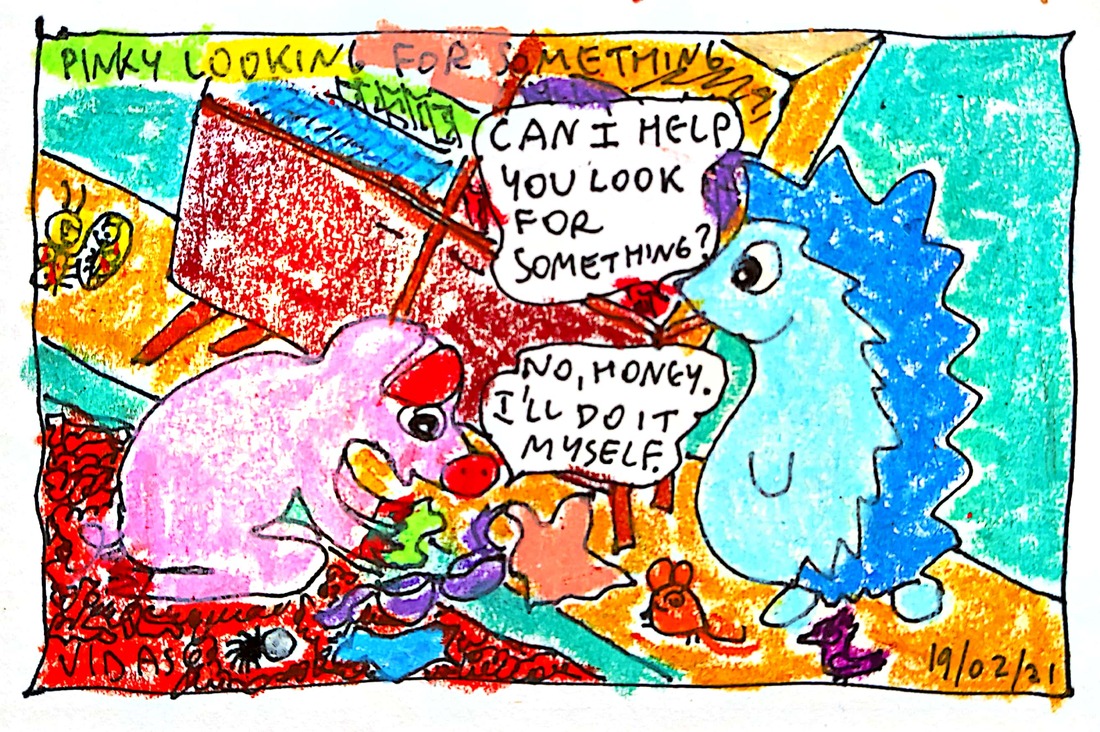
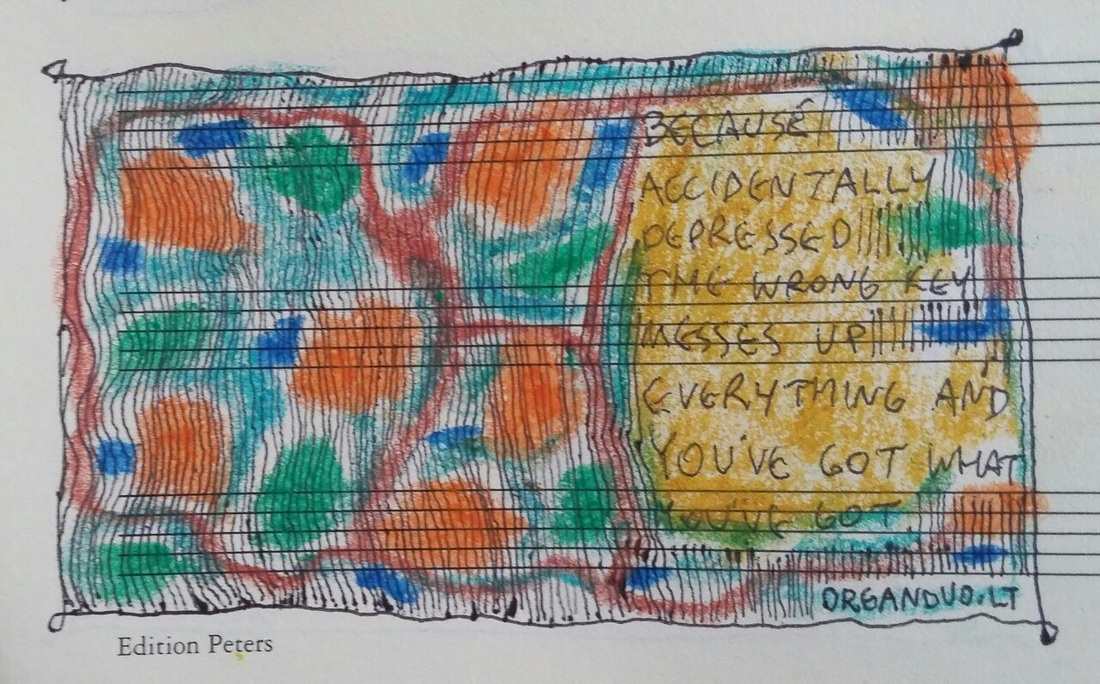
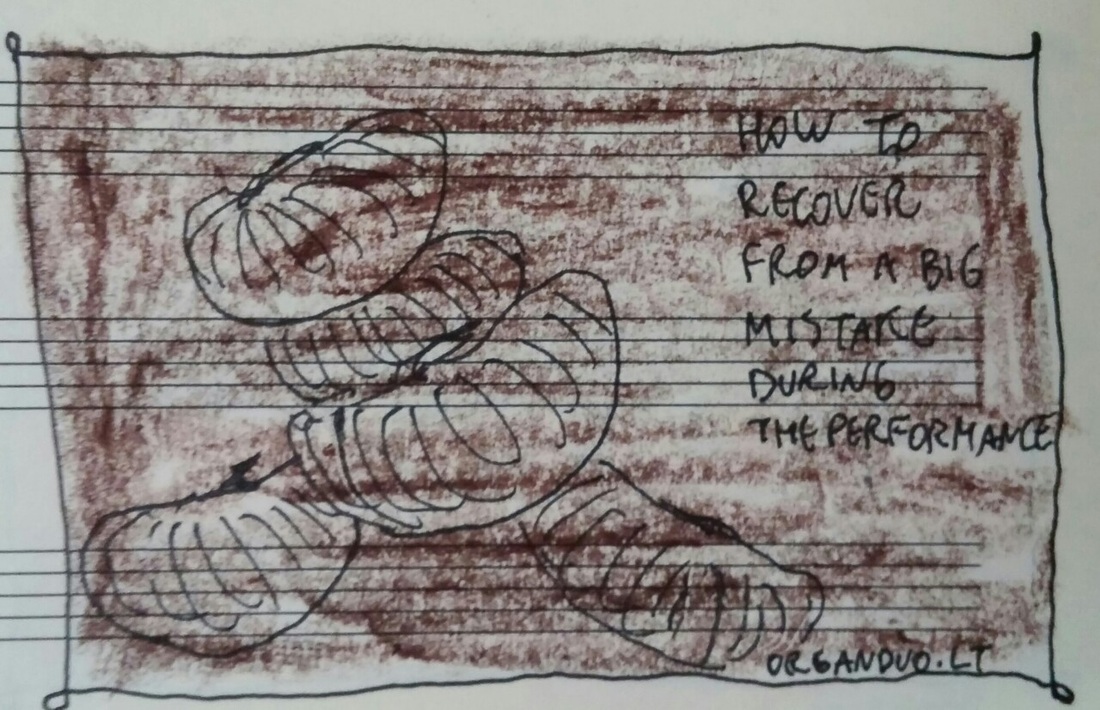
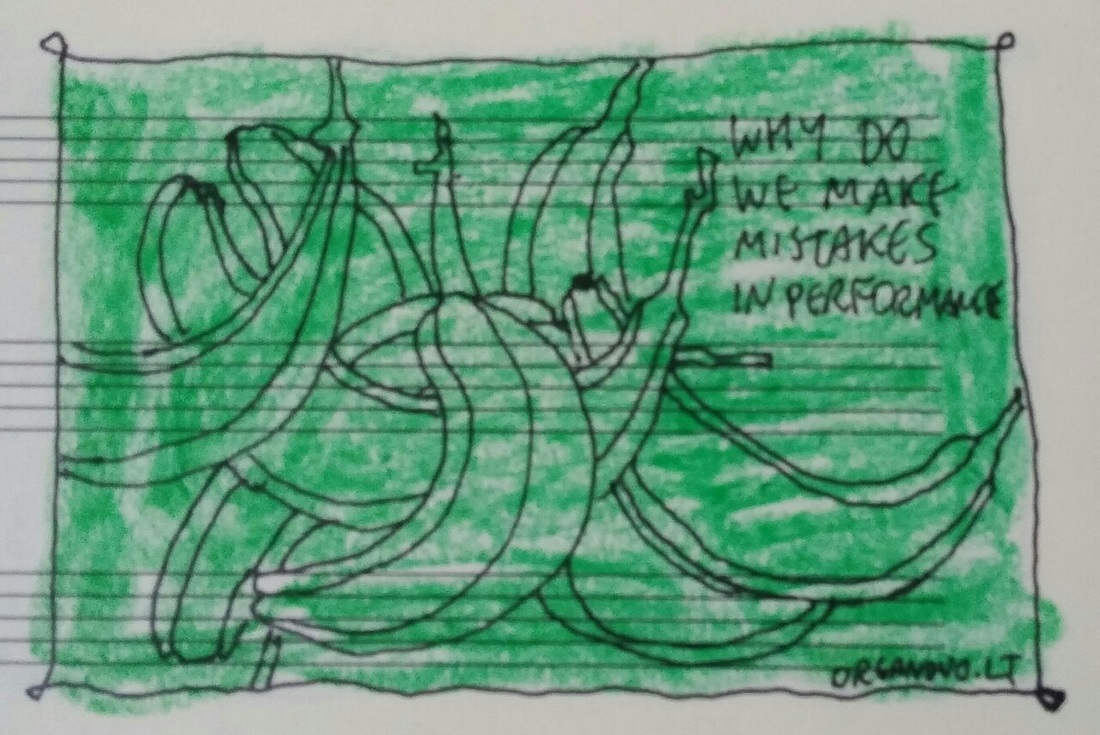
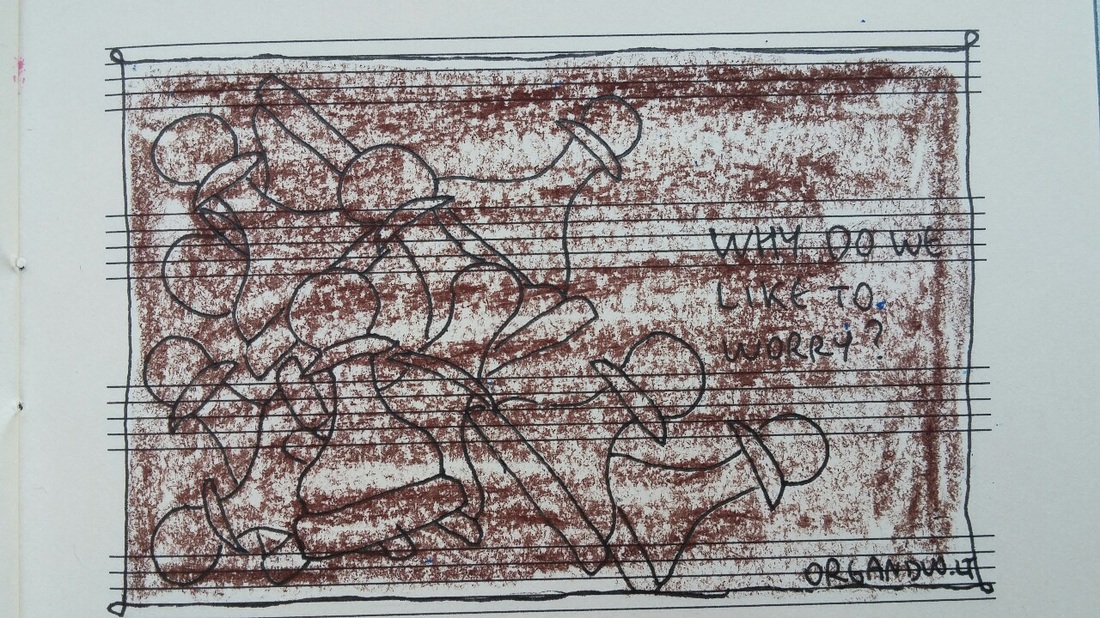

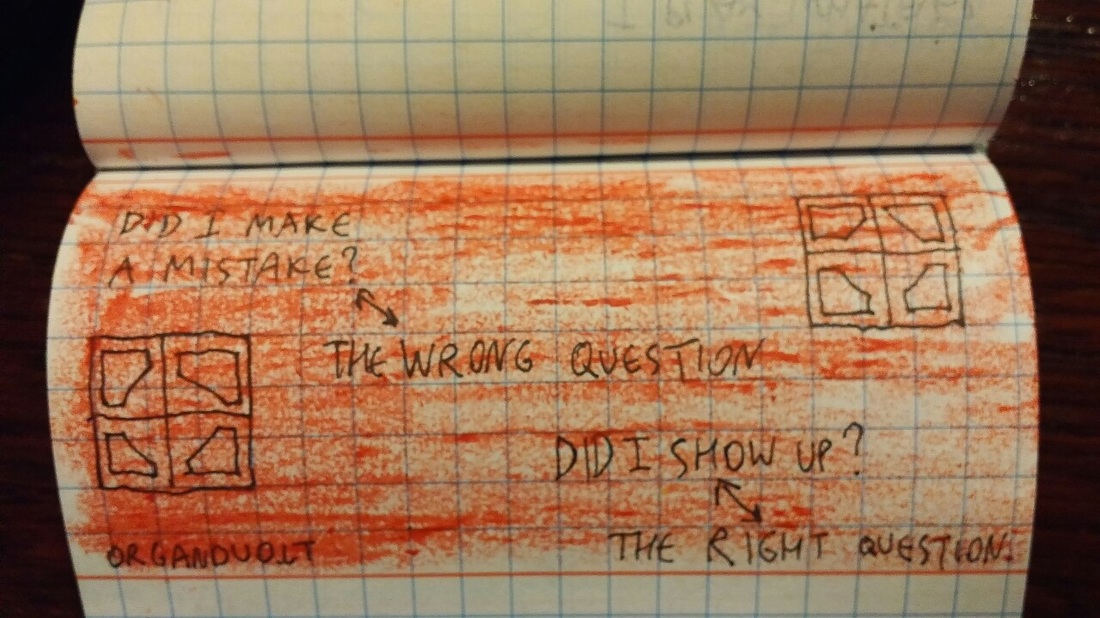
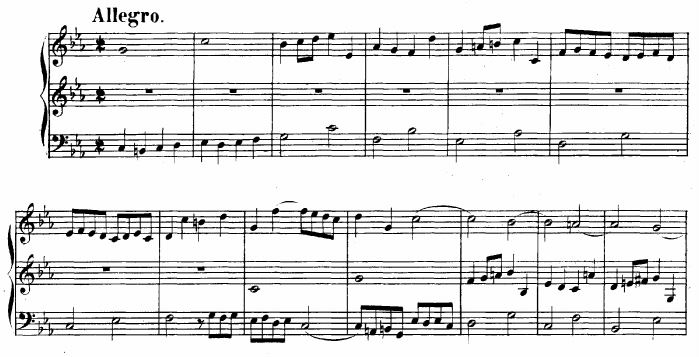



 RSS Feed
RSS Feed